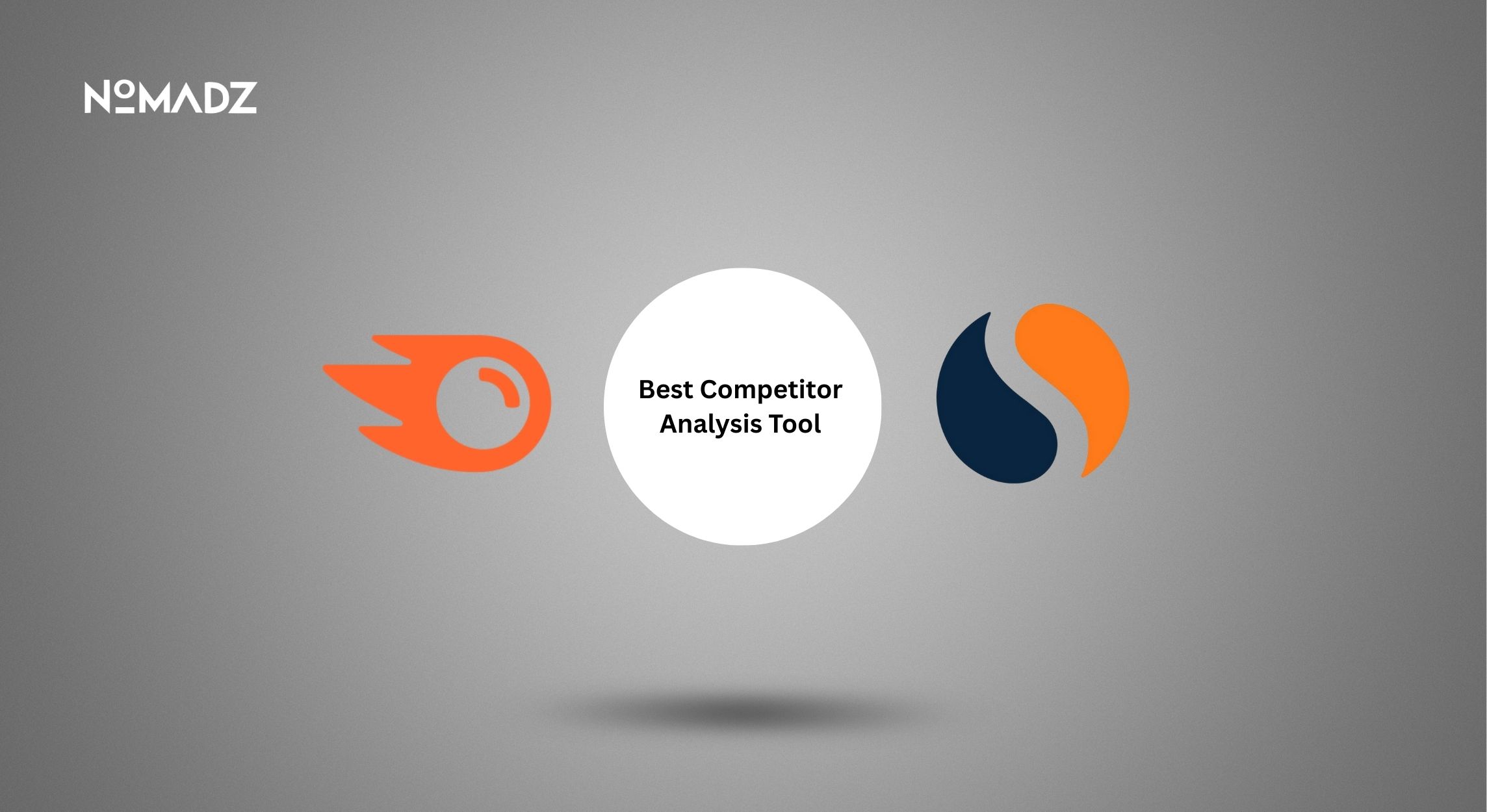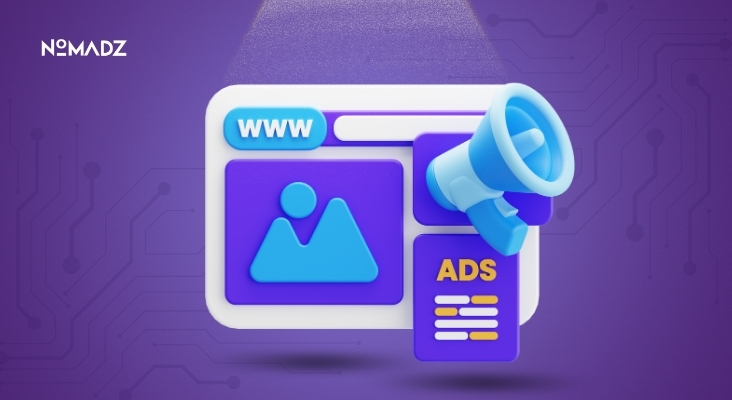Choose the Best Competitor Analysis Tool for Your Business
Starting a business brings excitement and multiple challenges to overcome. Your business must succeed, and you must first understand what your competitors do. This is where a competitor analysis tool comes into play. The tool allows you to monitor competitor activities, which provides important information to support better business decisions.
This blog is about choosing the best tools for your business operations while emphasizing the importance of competitor research for business expansion.
What is a Competitor Analysis Tool?
Businesses can use competitor analysis tools, such as computer programs to monitor their competitors’ activities. The combination of website and social media data enables the generation of valuable business competition insights, which the tool provides enhanced market pattern visibility. It also offers opportunities for early market leadership.
Why is Competitor Analysis Important?
A thorough analysis of your competitors enables businesses to determine what activities other organisations in the same industry conduct. Knowing their strategic approaches enables you to develop better methods. Business expansion requires knowledge about your competitors’ activities to attract additional customers.
Competitor monitoring tools enable businesses to track competitor activities, which helps them stay updated on strategic moves for improved planning. Preparation enables you to make superior choices while maintaining a lead position.
Types of Competitor Analysis Tools
Many types of competitor analysis tools are available, each focusing on a specific area of business. This table helps explain the tools used for competitor analysis.
| Type of Tool | Function | Example of Tools |
| Website Traffic Tools | Track website performance and analyse traffic sources | SimilarWeb and SEMrush |
| SEO Tools Analyse | SEO strategies, keywords, and backlinks | Ahrefs and Moz |
| Social Media Analysis Tools | Track social media activity, content performance, and engagement on platforms. | BuzzSumo and Socialbakers |
Some popular analytical tools help companies better understand their competitors in the market.
1. Website Traffic Tools
Users gain access to their competitors’ website performance metrics through website traffic tools. These tools, including SEMrush and SimilarWeb, show exactly how many visitors your competitors’ sites get, which pages users prefer the most, and what methods visitors use to find these competitors.
The competitor analysis tool makes it possible to analyze their content and marketing strategies. Web traffic trends during different seasons will show you when your promotions and launch campaigns should occur.
Also Read: How to Reset the Instagram Algorithm in 2025 for a Better Feed?
2. SEO Tools
As Google grows, SEO tools are needed to help websites appear higher in search results. Competitor research tools focusing on SEO, such as Ahrefs or Moz, help you analyse your competitors’ keyword strategies. The tools show which keywords create visitor traffic and the links that strengthen their ranking.
They also show the effects of their SEO initiatives on business output. The gathered information helps you to change your SEO approach for better market competition.
3. Social Media Analysis Tools
Social media is a huge part of modern marketing, and social media competitor analysis tools are designed to help businesses track their competitors’ performance on platforms like Instagram, X (previously known as Twitter), and Facebook. BuzzSumo and Socialbakers give users insights about their competitors’ effective content strategies.
They also offer information on posting frequencies and follower engagement levels. Such tools enable you to develop fresh content strategies and better identify the preferences of your target market.
Also Read: Best Facebook Marketing: Tips to Grow Your Social Media in 2025
4. Ad Monitoring Tools
Multiple businesses depend on paid advertising tools to reach their target audience. The tools AdEspresso and SpyFu help users track their competitors’ advertising activities. These tools enable you to track their advertising locations and their selected platforms. You can also evaluate the success of their advertising initiatives.
Using this information to create unique approaches to targeting the same audience will make your strategies more effective.
5. Competitor Price Monitoring Tools
Price tracking tools prove useful for businesses that sell identical products to their competitors. The platform tools Prisync and Price2Spy help businesses to see their competitors’ prices for effective market competition. Through competitor price monitoring tools, you can make strategic price adjustments. This ensures both strong competitive performance and maximum profitability advantages.
6. Customer Review and Sentiment Analysis Tools
ReviewTrackers and Brandwatch are tools for customer reviews and sentiment analysis. They help monitor and analyse public opinion about your business competitors. These platform analysis tools collect customer reviews from Google, Yelp, and other major review sites. They compile this information to provide a comprehensive overview of customer feedback.
This enables you to understand customer sentiments toward your business competitor. You will uncover unmet needs within their services or products, which you could successfully capitalise on.
Also Read: Top Social Media Advertising Campaigns for 2025
7. Content and Backlink Tools
Backlinks represent external website links to your content and serve as an important SEO element. The backlink tracking tools Majestic and Monitor Backlinks help you monitor the backlinks your competitors receive. This approach allows you to analyze their content creation and platform sharing methods.
This information improves your content marketing plan and helps you get more backlinks to increase your website’s authority.
Conclusion
Selecting an appropriate competitor analysis tool becomes important for business success in modern markets. Organisations can collect important competitor data that improves overall decision quality through proper tools. Whether using research tools to analyse websites, social media, or ads, the right competitor research tools can give you an edge.
Remember, you don’t have to spend a lot of money; many free competitor analysis tools are available to get you started. Nomadz Digital and Innovation is here to provide professional help for your competitive analysis requirements.
Also Read: Why User-Generated Content Marketing Matters in 2025?
FAQs
Q. Which tool among SEMrush, Ahrefs, and BuzzSumo best fits your needs?
A. The best tool depends on whether you need SEO data (SEMrush or Ahrefs) or content and social insights (BuzzSumo).
Q. What are competitive analysis software tools?
A. Businesses use competitive analysis tools to study rivals’ strategies and improve decision-making.
Q. Which tool would you choose for competitor analysis?
A. The required competitor’s tools depend on your business targets, and SEMrush for SEO, BuzzSumo for social media, and SimilarWeb for website traffic are typical choices.
Q. What are the four main ways to do competitor analysis?
A. The four ways are: SWOT analysis, market research, social media review, and SEO check.
Q. How do social media competitor analysis tools track competitors on Facebook and Instagram?
A. The tools help businesses track their competitors’ performance on social platforms like Facebook and Instagram.









Leave feedback about this